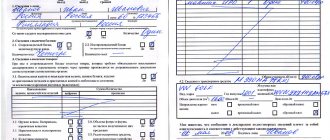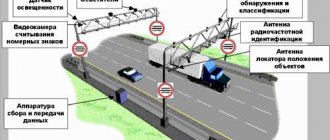Delivery of various goods from Finland and to Russia is extremely profitable due to the fact that these countries are located closely. Thus, active import is facilitated by the low cost of this service. Various companies, including LCM GROUP, organize the delivery of goods of various contents. They deliver from Finland to Russia:
- Cars.
- Tools and equipment.
- Paper and cardboard.
- Wood products.
- All kinds of metals and products made from them.
- Chemicals for household and technical purposes.
- Household appliances.
- Medicines.
- Various swimming equipment.
Logistics specialists, when organizing the transportation of goods from this list, take on not only all the work of packaging, storing, and shipping products. Clients trust them, including the preparation of documents. When going through customs control, a lot of questions may arise with them. Minor mistakes made during cargo registration can lead to unpleasant consequences. This, of course, increases the customs clearance time. There may also be some costs involved.
Before the trip
We recommend that you make photocopies of your passports, including the visa page, before departure. Due to the increased load on airports and transport problems, we advise you to arrive for check-in at least three hours before departure. To cross the border, you must have the following documents with you: passport, printout of an electronic air ticket, insurance, hotel voucher. If minor children (under 18 years of age) go on a trip without parents or with one of the parents, then they must have a notarized permission from the parents, issued in the name of the person accompanying the child (required at passport control when leaving Russia). If a child is traveling with one of the parents, we strongly recommend that you have similar permission from the other parent, as well as an original or notarized copy of the birth certificate.
We remind you that the tour operator is not responsible if the Border Control Service does not release children abroad due to lack of permission, or if the tourist’s passport is on the stop list at the request of the Bailiff Service.
Currently, the following procedure has been established for the export of cash foreign currency from the Russian Federation:
- export of an amount not exceeding 10,000 US dollars (approximately 7,000 €) - a customs declaration is not required to be submitted to the customs authorities;
- export of currency over 10,000 US dollars - a written customs declaration indicating the amount of exported currency (in 2 copies) is required to be provided to the customs authorities.
PAC GROUP is not a carrier.
We order and buy tickets from a number of companies. When issuing a ticket, an agreement is concluded between the carrier and the passenger whose name is indicated on the ticket. Flight delays (due to weather conditions, technical reasons, strikes and force majeure) are rare. However, sometimes they can lead to a disruption or change in the program of stay. PAC GROUP is not responsible for such delays. We are also not responsible for the safety of luggage during air travel. If you are flying on tickets you purchased yourself, be sure to notify PAC24 about the flight delay. We recommend arriving at the airport 3 hours before departure. If you are traveling to Finland by train, it is enough to be at the station 1 hour before departure; boarding the train begins half an hour before departure.
Food basket
The vast majority of Russians visiting Finland buy food there. But before you fill your cart at the supermarket, it’s a good idea to remember what food and drinks cannot be taken out of Suomi. In some media, journalists write about customs officers confiscating “sanctions” from tourists, that is, goods from the EU on which the Russian Federation has imposed sanctions. Due to the substitution of concepts, confusion has appeared in the heads of tourists - many do not understand whether they can bring, for example, a piece of cheese from Finland for themselves and their friends. In fact, goods are confiscated from tourists not because of counter-sanctions, but because of violations of the import procedure: for example, the weight of imported goods of animal origin exceeds 5 kg, or the meat is not packaged in the original packaging. The list of prohibited goods has existed for many years - it appeared long before the sanctions.
Arrival in Finland
When crossing the border, you must have an insurance policy with you for the entire period of your stay in the country. Finnish customs regulations limit the import of alcohol and tobacco products (one liter of spirits and 10 packs of cigarettes per adult if you enter the country for more than 3 days).
The export of works of art that are more than 50 years old, historical and cultural values, and peasant household items is prohibited - without special permission.
Veterinary control
When imported from Russia into the EU, pets must be identified by a clearly visible tattoo or implanted microchip. The microchip must comply with ISO 1178 or ISO 11785 Annex A. Otherwise, the owner must provide a device to read the chip. In Finland, Indexel and Datamars microchips are accepted. Rabies vaccine is required. The vaccine must comply with WHO international standards.
Animal identification marks for export abroad must be made prior to rabies vaccination. If you are bringing a dog or cat into Finland, you must have a veterinary certificate confirming that the animal has received the correct dose of anti-tapeworm medication. The period of such certificate should not exceed 30 days.
Currency unit – euro
You can use credit cards to pay for purchases and withdraw cash from ATMs. Banks are closed on Saturdays and Sundays, and on weekdays they are open from 08.30 to 13.30 and from 15.00 to 16.30.
Electricity
220\240 V (usually the voltage is indicated on or near the outlet).
Excursions and transfers
Group
Ordered and paid services, such as transfers and excursions, are provided to the tourist only at the time specified in the program or voucher, which can be specified by the accompanying person on the spot depending on the specific circumstances. For example, a plane is late, traffic jams, a bus breakdown, a tour guide’s illness.
Individual
Each individual service must have a separate voucher indicating the day, time, meeting place, as well as a contact number to call if problems or questions arise.
In case of unforeseen circumstances (problems with border or customs services, lost luggage, you cannot find a greeter), you should contact the receiving party by phone at the number indicated in the information sheet, which is in your set of documents, or contact the 24-hour PAC24 support service.
Office hours
Shops are usually open on weekdays from 09.00 to 20.00 and from 09.00 to 15.00 on Saturday. Some shops are open longer and also open on Sundays between June and August. Supermarkets in Finland are open on Saturday and Sunday until 18.00, and on weekdays until 21.00.
TAX FREE checks are issued in most stores for purchases over 50 euros. Refunds for these checks can be made on the train at the border or at airports. If there is no TAX FREE office at the local airport, do not forget to put a departure stamp on your check (put on when checking in for an international flight), and you will be able to receive a tax refund at some banks in Moscow.
Banks are usually open on weekdays from 09.15 to 16.15. Weekends are Saturday and Sunday.
Post offices are open from 09.00 to 17.00 (some until 19.00). Some post offices in grocery stores and gas stations are open until 20:00 or 21:00.
The central post office in Helsinki is located at Mannerheimintie 11 F. Opening hours: weekdays - from 08.00 to 21.00, Saturday - from 09.00 to 18.00, Sunday - from 11.00 to 21.00.
In many Finnish restaurants, breakfast is usually served from 06.30 to 10.00, lunch from 11.00 to 13.00, lunch from 16.00 to 19.00, dinner from 19.00 to 00.00.
The Lost and Found Office (Loytotavaratoimisto) in Helsinki is located at Paijanteentie 12A (tel.: 189-31-80, fax: 189-28-29). Opening hours: weekdays – from 08.00 to 14.15, Wednesday – from 08.00 to 17.30.
Kitchen
Traditional Finnish dishes include various types of fish with various side dishes and sauces (in the eastern regions “kalakukko” - fish with or without bacon, baked in rye dough), meat dishes (“karjalanpaisti” - a dish of several types of meat; in Tampere: "musta-makkara" - blood sausage), including elk and reindeer ("poronkäristus" - thinly sliced venison), pies ("kalekukko" - with fish; Karelian "karjalanpiirakat" - with rice or mashed potatoes, served in hot with mashed boiled egg and butter; “riisipuuro”). Vegetables are consumed in large quantities. The most common berries are raspberries, blueberries and lingonberries, and there are many mushrooms. The most famous alcoholic drinks are Finlandia vodka and Lakka cloudberry liqueur. Beer is popular.
Tips
Not required or implied. A restaurant receptionist may receive a tip for wardrobe services (no more than 2 euros).
Purchases
Finnish furs, gold jewelry made from Arctic gold, sports equipment, clothing, shoes, Finnish glass products, Finnish knives with handles made of horn or hare's paw (although they may cause problems at customs), national Finnish dolls, souvenirs (figurines of bears, white deer). In Finland, the sale of alcoholic beverages is allowed only in ALKO stores, which are not available in all cities, and especially not in all villages. ALKO stores are closed on Saturday and Sunday. You can buy alcohol in most hotel restaurants, but prices there are much higher than in stores. You are not allowed to bring alcohol into the restaurant.
TAX REFOUND
The minimum amount for obtaining tax free in one store is 50 euros. This may be one or more items, but all purchases must be paid for in one check. Tax free on food products can also be obtained, but the total amount of food purchases should not be less than 50 euros.
If you make a purchase in a supermarket and buy both food and non-food products at the same time, then the purchase amount for both separately must be at least 50 euros. In this case, you will receive two tax-free receipts - one for each group of goods. After payment, ask the seller to issue a tax-free for the goods you purchased (usually you just need to say “tax-free” - the sellers themselves already know what and how to issue. The manager can also issue the documents).
To apply for tax free, you will need your foreign passport. The seller will issue a tax refund receipt, which will indicate the purchase price, refund amount, and number of packages of goods. He will then give you a form, and you will write your address and signature on it. A fiscal receipt for your purchases is attached to the receipt form.
When leaving Finland at special Global Refund points, the tax amount will be returned to you in cash (in euros) using a receipt. To do this, you will need to present your passport, receipt with a receipt and sealed purchases in undamaged store packaging.
If for some reason the issuing point is closed or you do not have time to receive a refund, you need to stamp the receipts at customs by presenting sealed purchases, after which there are two options for receiving a refund - to a credit card, if you send a sealed envelope with stamped receipts by mail (the mailbox is located at the returns window). You can also receive a refund based on checks stamped by customs - in your city, at a bank that works with GLOBAL Refund systems.
What is allowed to import
What can you import to Russia from Finland? Let's look at the rules for importing goods.
- Alcohol - up to 15 liters of beer, no more than 6 liters of alcoholic beverages, below 22 strength, 1 liter of strong alcohol.
- Tobacco - 200 cigarette products, 250 grams of tobacco leaf, 50 cigars.
- Perfume products - no more than 250 milliliters per person.
- Food – no more than two kilograms of seafood, 2 kg of honey and eggs. Salmon caviar has a separate limit - 125 grams per person.
- Medicines are only those that are sold in the country without a prescription. Prescription drugs must be supported by a doctor's note. The import limit for tablets, drops and ointments is up to three months of treatment.
The standards are established by law and are not subject to duty.
They are valid for individuals - entrepreneurs and for personal use.
Restrictions for legal entities are different. All imported goods are subject to taxation.
Car tourists often ask how much gasoline can be imported into Finland. No more than 10 liters in a separate container.
The car tank can be filled to capacity. This will not be superfluous considering the cost of gasoline in Suomi. The general carriage allowance is calculated at 430 euros per person.
Features of crossing the border with Finland
By car. The border between Russia and Finland can be crossed at the points Torfyanovka - Vaalimaa, Brusnichnoe - Nuijamaa, Svetogorsk - Imatra, Värtsilä - Niirala, Lyttä - Vartius, Suoperä - Kortesalmi, Salla - Salla, Lotta - Raia-Jooseppi. Train passengers heading to Finland cross the border at Vainikkala
Don't forget to purchase a Green card for your car in advance.
At each checkpoint you need to choose one of the main crossing routes, that is, the “green” or “red” corridor. Vehicles whose passengers do not have items subject to written declaration, as well as the import or export of which requires special permission or is prohibited, can travel along the “green” corridor. All other cars have to move along the “red” corridor, including those whose passengers are carrying indoor plants or pets; any types of weapons; amounts of currency exceeding the amounts subject to written declaration; any goods, the quantity of which is subject to taxation, and other items specified in the documents regulating the import of goods and personal belongings into the country of your destination. When crossing the border, you need to keep in mind that the division into “red” and “green” corridors is very arbitrary, and a customs officer may well direct you to “red” simply for the reason that you are driving a car, and it belongs to items subject to declaration. When following the “red” corridor, filling out a declaration is mandatory.
When crossing the border by car, you need to complete several procedures specified by law. When you approach the checkpoint to exit Russia, be aware that trucks and cars have different lines, so proceed past them and stop behind the nearest car.
After it’s your turn, drive up to the barrier. At this stage you need to present your documents, as well as the documents of your passengers. After this, the barrier is opened, and you must proceed to the checkpoint itself, according to the signs (trucks, cars, buses). Here, both you and your passengers must leave the car and go to the window. The driver with a passport and car certificate goes through passport control first, followed by passengers with passports. While the documents are being studied, the customs officer conducts an interview with you, consisting of standard questions about the things being transported, and he also has the right to ask you to open the trunk. Most often, this is the last point of customs inspection, but you may be asked to fill out a declaration. After it has been verified, the documents and one of the copies of the declaration will be returned to you, and you can consider one checkpoint passed and yourself as having left the borders of Russia.
By train
Tourists crossing the border by train go through customs and passport control directly on the train (with the exception of those who get off at Kouvola station - they have passport control at the station).
Quantity of goods
The second important parameter is the number of imported goods
An important parameter is the number of imported goods. There are no strict rules here, but if the customs officer thinks that you are carrying goods not for personal use, but for sale, he will ask you to fill out a tax return and pay a duty. For example, if you want to bring 3 digital cameras across the border, you can easily explain their presence by saying that you want to give one to your parents, another to your brother, and the third to keep for yourself. However, if you have about ten such cameras, such arguments will most likely be untenable.
You can read more about the export of goods from EU countries here.
Accommodation in a hotel/cottage
When checking into a hotel you must present your passport and voucher. Check-in time is usually no earlier than 14.00 when rooms are ready. Things can be left in the hotel's storage room until check-in time, if available. In case of difficulties with accommodation, please contact the company representative at the resort or the PAC24 service by calling +7, 24 hours a day.
Upon departure from the hotel
Checkout time is usually 09.00 – 12.00. Do not forget to pay in advance for additional services at the hotel: telephone calls, use of a minibar, laundry, dry cleaning, etc.
Before using the service, find out how much it costs. In the event of a conflict situation with the administration of a hotel or restaurant (for example, refusal to pay for services), a representative of the administration has the right to act in accordance with the laws (calling the police with rather unpleasant consequences).
There are no ironing rooms in the hotels; the use of irons in the rooms is upon request at the reception. Before handing over items to the laundry, find out the order completion time (usually at least 24 hours).
Check-in to the cottages begins after 16.00 on the day of arrival. The cottage must be vacated before 12.00 on the day of departure.
The number of residents in a cottage should not exceed the number of beds.
The tourist is financially responsible for damage to property in the cottage, as well as for loss of keys. Before leaving the cottage, tourists must remove their bed linen, wash the dishes and take out the trash - this is not included in the final cleaning price.
Pets
Pets, such as fish, dogs or hamsters, can be transported across the Finnish border provided they have a veterinary passport and a certificate from a veterinarian. Mandatory condition: this certificate must have a stamp with a hologram of the veterinary service. What information should be included in the certificate?
This is what a veterinary certificate for transporting a dog to Finland looks like
- Date of issue of the veterinary passport to the animal.
- Dates of all doctor visits.
- Date of deworming.
- Flea and tick treatment fact.
- The fact that the animal is vaccinated.
- The fact of installing a microchip.
This certificate must be received no earlier than three days before the planned border crossing. If the pet is purebred and has a pedigree, then it is necessary to present a permit from the canine association to customs.
Car rental and road safety
To rent a car you need a valid driver's license, at least 1 year of driving experience, a minimum age of 19-25 years (varies among different companies), payment is almost everywhere by credit cards.
The condition of roads in Finland is excellent. The road network covers the entire territory of the country. Finland is a right-hand drive country; overtaking is done in the left lane. Driving in Finland is a relatively calm and enjoyable experience, but in winter, due to the northern weather conditions, extreme caution must be taken on the roads. The use of winter tires is mandatory from the beginning of December to the beginning of March, and it is also recommended that the car have an engine preheating system. All passengers in the vehicle must wear seat belts. Low beam headlights must be on at all times, regardless of the time of day.
Motorists are also advised to be extremely alert for moose and deer, which often wander onto roads and cause serious accidents. These animals are most active at dawn and in the evening.
Please note that not all gas stations accept credit cards from foreign banks.
Basically, the speed in populated areas is limited to 40-60 km/h, on highways - 120 km/h.
It is prohibited to drive vehicles under the influence of alcohol or drugs. The permissible alcohol content is 0.5 ppm. During the trip, the driver does not have the right to use a mobile phone without a headset (hands free).
Car requirements:
- Driver's license. Russian rights are valid in Finland; nothing additional is required. A driver's license issued in Russia or the USSR is also valid in Finland.
- Serviceability of headlights, turn signals, brakes, wheels and steering. When driving on the roads 24 hours a day and all year round, headlights must be turned on. It is recommended to keep the low beams on also in populated areas.
- The minimum permissible tread depth for summer wheels in Finland is 1.6 mm. It is prohibited to use winter and summer tires at the same time.
- The use of radar detectors is strictly prohibited in Finland. Even a non-activated radar in the glove compartment of your car is a violation of the law.
- A temporary driving permit is not valid in Finland.
- Green card (“green card”) is a civil liability insurance policy for car owners in Europe. The easiest way is to purchase a Green card at a Green Card sales point near customs.
- The presence of a sticker belonging to your country (RUS, for example).
- No tinting on car front windows. Tinting of the windshield and front windows is permitted only within the limits permitted by the manufacturer.
- The light transmittance of the windshield must be at least 75%, and of the front side windows - 70%. Many car manufacturers darken the windows to the maximum, but the glass still appears clear. Additional darkening, for example with light-protective film, is prohibited in Finland. And this requirement of the Finnish side is so serious that in the event of such a situation, you have to either turn home to your homeland, or remove the film right at the border.
- Winter tires and studs. Winter tires (without studs) can be used all year round, however, from December 1 to the last day of February, a period of mandatory use is established, and the tread depth of this type of tire must be at least 3 mm. The rubber must have a stamp (M+S). The use of winter tires with studs is allowed only in the period from 01.11 to 31.03, but it is allowed to exceed the established deadlines if the use of these tires is necessary due to weather conditions. The use of summer tires with a tread depth of at least 1.6 mm is permitted from 01.03 to 30.11 (that is, in the summer you will not be allowed on “bald” tires either).
- Finns don’t ask for vehicle inspection tickets.
Insurance policy and medical assistance
Every tourist is required to have a medical insurance policy. The policy includes the names of tourists and the duration of their stay in Finland. The insurance policy contains information in Russian about the rules for insuring medical expenses. Be sure to read the terms and conditions of the insurance contract before traveling.
We recommend that you carry your insurance policy with you at all times during your stay in Finland. We remind you that diseases associated with pregnancy and the consequences of alcohol or drug intoxication are not insured events. If a tourist becomes infected with an infectious disease, the hotel administration has the right to demand his eviction from the hotel and his transfer to a hospital.
If you need medical care, you should immediately call the representative office of your insurance company at the phone number specified in the policy and provide the following information: last name, first name, date of birth, insurance policy number. A representative of the medical service company will find out what happened, where you are, explain how to behave in this situation and what compensation you can expect, and, if necessary, refer you to a doctor. In this case, the visit to the doctor and subsequent treatment are paid for by the insurance company. In some cases, it may be necessary to pay the costs of treatment on site (only by agreement with the insurance company). Then the expenses incurred by the tourist due to the insured event are returned by the Moscow representative office of the insurance company after the trip - if there are supporting documents.
If a tourist independently consults a doctor, then in this case one must be prepared to pay for his services in full on the spot and not claim full compensation for the expenses incurred by the insurance company.
Product weight
The first thing you should pay attention to is the weight of the product. Each person can export purchases weighing up to 25 kg duty-free from Finland. For every kilogram over that you will have to pay 4 euros. What to do if the two of you are carrying goods weighing from 25 to 50 kg - for example, a sofa or kitchen furniture? It all depends on family ties and the specific customs officer. If you are traveling with your wife or parents, there may not be any problems. When exporting goods for family use from Finland, their weight may be divided by the number of people. If you are traveling with a friend or colleague, you will most likely have to pay a fee for every extra kilogram.
Personal safety
In order for you to remember your trip only from the most pleasant side, we advise you to follow the following rules:
- Do not leave valuables unattended anywhere, including in a hotel, restaurant or bus. You cannot take up space by placing a bag on a table or chair, putting your phone, room keys, etc.
- Valuables should only be stored in the safe in the room, and if not available, in the safe at the reception (even for a small fee). The hotel is not responsible for things left in the room. Only for those left in the safe with obvious signs of forced entry (within the hotel insurance limits).
- Be especially careful with documents: store them in a safe or keep them with you. Don't carry your passport with you unless absolutely necessary; a photocopy is enough. If you lose your passport, you must personally contact the Consulate for a return certificate. You will need copies of documents proving your Russian citizenship and photographs.
- Do not leave your luggage unattended in crowded places (airports, public transport stops, trains, buses, stations, stadiums, shops, etc.) In accordance with local laws, suitcases, bags, packages left unattended may be confiscated for inspection with possible further destruction, and a significant fine may be imposed on the owners of the luggage.
Where to go in emergency situations
The single free number for rescue services (ambulance, police, fire department, etc.) in Finland is 112.
Russian Embassy in Helsinki
Address: Tehtaankatu 1 b, 00140 Helsinki, Suomi
Telephone: (8-10-35-89) 66-1876, 66-1877, 60-7050
Fax machine: (8-10-35-89) 66-1006
Email:
Consulate General in Turku
Address: Vartiovuorenkatu 2, 20700 Turku, Suomi
Telephone: (8-10-35-82) 233-6441
Fax machine: (8-10-35-82) 231-9779
Email:
The code in brackets before the number is dialed when calling from Russia.





